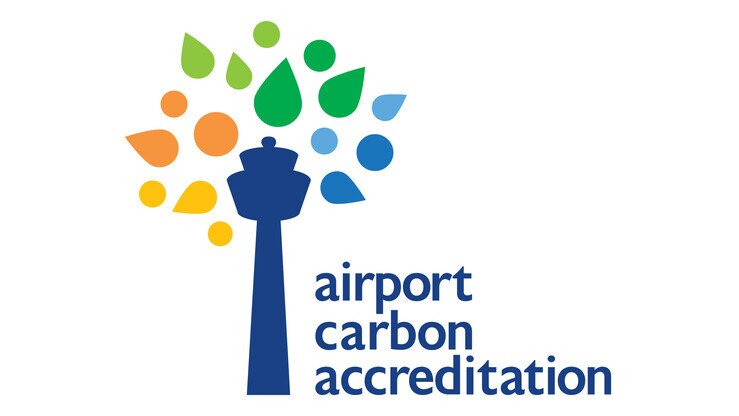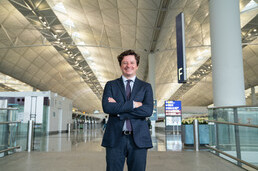Indira Gandhi International Airport Explains Journey to Highest Carbon Accreditation Level
- 09 Feb 2021
The newly-released Airport Carbon Accreditation Interim Report 2019-20201 showcases the latest results of and developments in the global carbon standard for airports. In it, ACI Asia-Pacific member Indira Gandhi International Airport explains its reasoning for applying for Level 4+ - Transition and in the process becoming one of the first in the world to be accredited under the new level.
Why did your airport decide to apply for Level 4/4+?
Climate change is an existential threat which is impacting communities and businesses across the world. To effec tively address the climate change concerns, Delhi International Airport Limited has adopted the Airport Carbon Accreditation programme, progressively reaching higher accreditation levels.
In 2016, Delhi Airport became the first carbon neutral airport in the Asia Pacific region, achieving Level 3+ (Neutrality). Furthermore, we have set our emission reduction targets in line with IPCC 1.5-degree scenario and are working towards making Indira Gandhi International Airport in Delhi a “net zero carbon emission airport” by 2030. This approach is aligned with ICAO’s emission reduction initiatives to achieve carbon neutral growth from 2020 as well as with Government of India’s climate change objectives, which are in line with the Paris Agreement. Upgrade to Level 4+ (Transition) is another step towards attaining “net zero carbon emission airport” status by 2030.
What was the most challenging requirement in the accreditation process?
India is amongst the fastest growing aviation markets globally. To cater for the forecasted growth, it’s essential for Delhi Airport to undergo expansion by upgrading existing as well as by adding new infrastructure. In this scenario, in spite of having best operational efficiency measures in place, the absolute emissions usually increase. Therefore, the key challenges were to formulate an absolute GHG emission reduction goal aligned with IPCC 1.5-degree scenario, along with a comprehensive carbon management plan in line with emission trajectories and to develop a Stakeholder Partnership Plan.
What would you recommend to other airports that wish to become accred ited at Level 4/4+?
Climate change mitigation is a collective responsibility. We all need to scale up our actions to act faster towards protecting the planet. It is very important to create awareness among all the stakeholders and work collectively towards the objective of reducing carbon emissions.
Airports that wish to attain Level 4/4+ accreditation need to integrate climate change mitigation related strategies into the organizational strategy and should adopt a holistic science based approach for reducing GHG emissions in line with IPCC recommendations. Airports should explore all feasible emission reduction measures such as green infrastructure programs, green energy use, efficiency improvements, resource conservation, adoption of circular economy, operational excellence measures, green transportation, innovative technological solutions, etc.
Apart from this, it is important to develop a robust GHG management system with a strong internal review process, which will help in adequately identifying and addressing improvement opportunities.
New level 4 and 4+
Two new accreditation levels were introduced in 2020: Level 4 (Transformation) and Level 4+ (Transition), for two main reasons. Firstly, to align the programme with the objectives of the Paris Agreement to limit the increase of global average temperature to 2°C above pre-industrial levels and pursuing efforts not to exceed 1.5°C; and secondly, to respond to evolving airport needs, especially for those airports that have already reached a high level of carbon management maturity and wish to show continuous improvement.
Levels 4 and 4+ are considered as an interim step towards the long-term goal of supporting airports in achieving net zero carbon emissions. These two new levels will therefore encourage airports to reduce their emissions in line with the latest scientific and political developments and meet growing public and stakeholder expectations.








